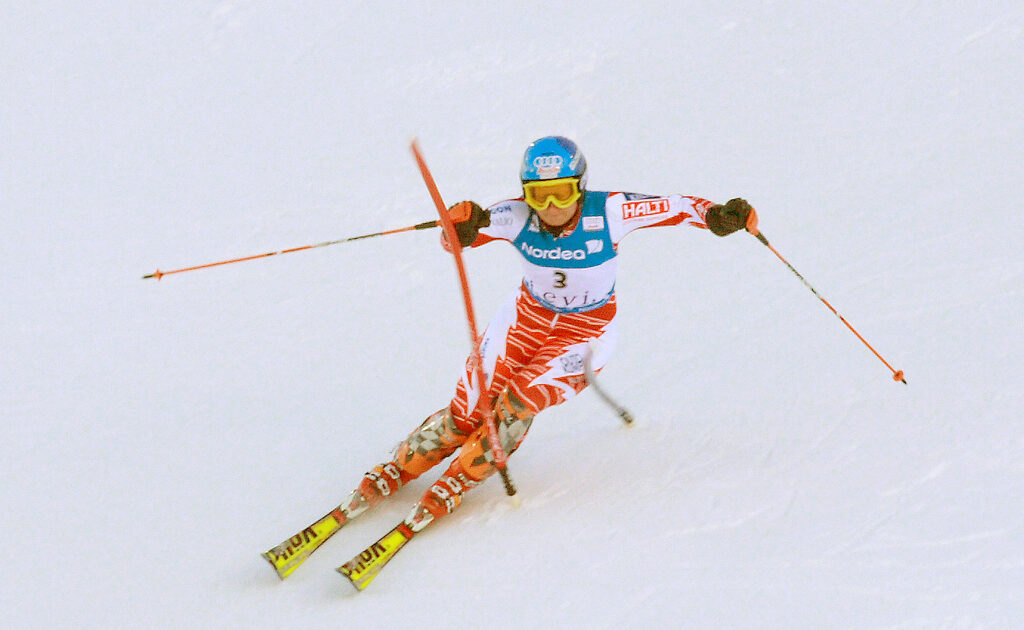Why You Love the Olympics: The Magic of Mirror Neurons

Why do we love the Olympic Games? Why do we love to witness the thrill of victory and the agony of defeat?
The young skier’s entire life has led up to this moment: the final race. She has spent countless hours and the majority of her years on earth preparing to compete with the best in the world. She is one of them. Nervous and with hope in their eyes, her parents watch from the stands. They are joined by thousands of other spectators in the stands, and millions more across the globe tuning in on their computers and TV screens.
On your mark; get set, GO! The race whizzes by in a matter of seconds as the athlete flies down the mountain, with a level of focus that transcends the moment. Making the moves look easy, she performs a graceful dance whose beauty belies its danger. Finally the finish line appears, and we see the skier zoom across it in a flash of speed. She looks intently at the time board, breathing heavy as her skis slow in the snow. Will she make it? Will she medal? What was the final time? The anticipation is agony. Then the numbers flash: it’s GOLD!
We watch the skier’s face as she realizes she has done it. She has won! All the sacrifices have been worth it. The hundreds of lessons, the thousands of dollars, the injuries and the early mornings have all culminated in absolute victory. Overcome with emotion, she falls to her knees with her arms thrust in the air high above her head. She looks at her parents in the stand; her mother is crying and her father is beaming with joy. Her younger brothers are bouncing up and down, and the entire stadium is cheering for the victor.
On the other side of the mountain, the camera zooms in on her competitor, the skier that was just knocked out of the top position. She grimaces and looks down, turning her head to the side. Her teammate puts an arm around her and they walk away.
It’s not just that the games bring countries together to test their very best athletes in friendly competition. We love the Olympics because watching the face of someone who experiences those emotions is most likely the closest we will ever come to winning, or losing, the gold medal.
Thanks to mirror neurons in your brain, you aren’t just watching another person win the gold medal – you’re experiencing a tiny bit of what it is like to win yourself. Mirror neurons fire both when you perform an action, and when you watch someone else perform the same action. Mirror neurons make you wince when someone else slams their finger with a hammer. You’re not just watching someone smash their finger; you’re experiencing the feeling with them.
Many researchers argue that mirror neurons are responsible for the basis of human empathy and emotional contagion; many also argue that empathy is responsible for the basis of human civilization. Our eyes let us watch the athlete win – but mirror neurons make us feel the victory. Much like the old saying, “you are what you eat,” perhaps it could also be said, “you feel what you see.”
So when you watch the faces of the winners and losers of the Olympic Games this month, your brain is experiencing the same emotions they are feeling. In all likelihood, you will never experience firsthand what it is like to win first place in the entire world after practicing your whole life, to lose the race by a split-second, or to wipe out in the snow before you even reach the finish line. But by watching the faces of those that do, you can share in these extremely powerful emotions and feel, just for a moment, a little more alive.
Related on Organic Authority
5 Healthy Habits for a Disease-Free Brain
15 Brain Foods to Get Your Kids Ready for Studying
7 Brain Exercises for a Buff Mind
Image: esapekka

